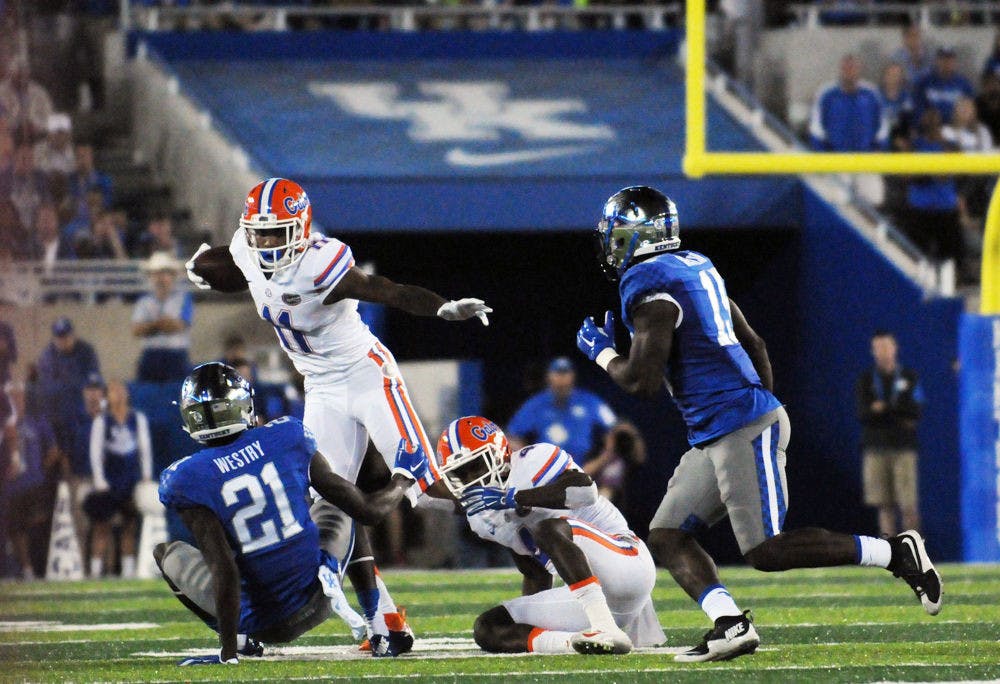Florida’s wide receivers haven’t lacked talent in recent seasons.
That’s at least what Kerry Dixon, the man charged with fixing UF’s receiving issues, says and believes.
"I had to hear that a lot, the lack of talent at the position," Dixon said. "When I look at it, it’s not a lack of talent, it’s a lack of consistency.
"Any time you have that much turnover at one spot, those guys are hearing so much different stuff and they’re being taught totally different things all the time."
The turnover he’s referring to is at the wide receiver coach position, which, with the addition of Dixon, has seen seven different men in charge in as many seasons.
That’s a lot of different voices and methods to try to grasp, and as soon as players had a chance to gain an understanding of one system, a new coach was hired and quickly replaced it with a new system.
The results haven’t been good.
Besides the quarterback position, UF wideouts have been some of the most maligned, criticized and disappointing players on the team’s roster, routinely failing to live up to the expectations their recruiting rankings placed upon them.
Since 2010, the Gators have had just one receiver catch for more than 600 yards.
If you’re counting, that’s five seasons.
The only player to do so was Demarcus Robinson last season, and while he did catch 53 balls for 810 yards, he consistently struggled with fundamental mistakes, particularly drops.
When Dixon got his first look at his receiving corps, he could immediately see the effects from having a different coach each year.
"When I first got here, I could see the lack of consistency," Dixon said. "I thought they had some ability.
"But I thought you could tell route-running wise and different things that they did, they just needed consistency and they needed coaching."
Dixon is trying to put things in place to build that consistency.
At the end of every practice, receivers now participate in catching drills in an effort to shake off the drop problems that have plagued Florida in recent years and get into the habit of making routine receptions.
When the drills are over, the coaches make a drop chart that lists every drop each receiver committed during every situation that day.
Dixon then puts the chart up in the receiver room for them all to see.
"It’s accountability," Dixon said. "You have to own up to it and get better at it."
His methods aren’t rocket science. He would admit that himself if asked.
In fact, before coming to UF, Dixon had no experience coaching receivers — he coached quarterbacks and running backs at various stops in his career.
But that hasn’t mattered to his players, who seem to have responded to his methods with fewer drops and more playmaking.
"They don’t care about how much you know," Dixon said. "They want to know how much you care."
Finally, those receivers have someone they know they can count on, someone who might stick around for more than a year.
Finally, they have someone who might be able to give them some consistency.
"That’s the one thing I want those guys to take from that guy," McElwain said. "They needed someone that they knew was going to be there."
Follow Graham Hack on Twitter @graham_hack24
UF wide receiver Demarcus Robinson attempts to elude a tackle during Florida's 14-9 win against Kentucky on Sept. 19, 2015, at Ben Hill Griffin Stadium.






